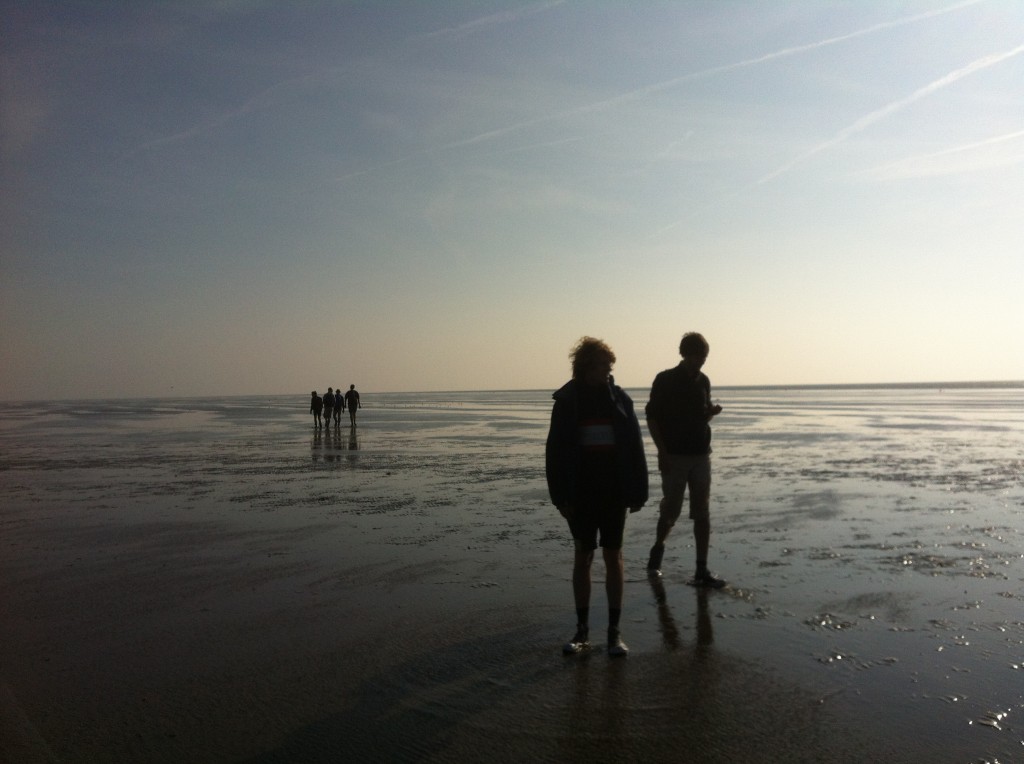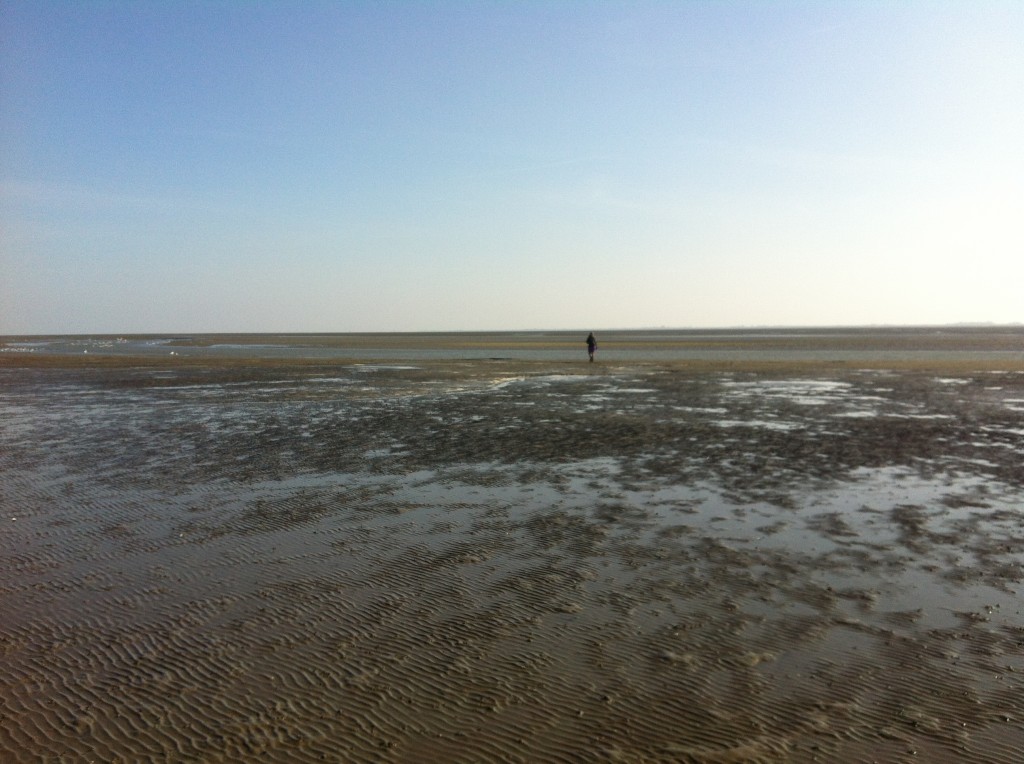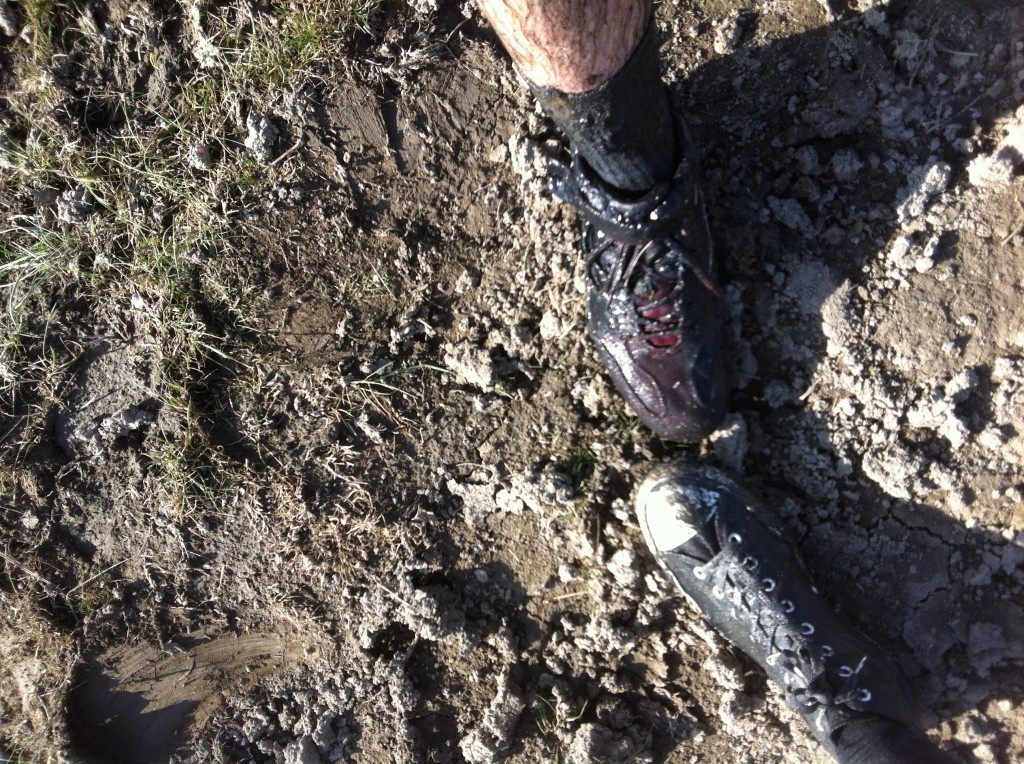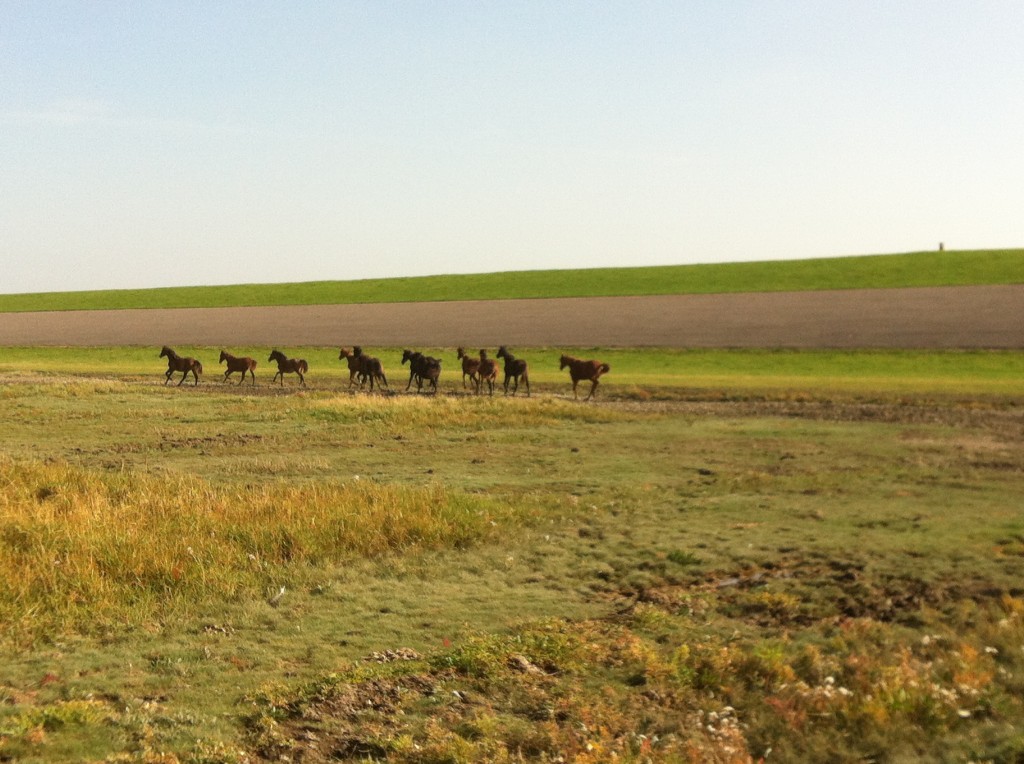Saturday morning, 6.30. Time to wake up. It promises to be a fun day: in a couple of hours, I’ll find myself back walking through layers of mud, in wet socks and shoes and covered in mud up to my knees. I’ll be spending four and a half hours through a two to five centimeter layer of sea water, here and there interrupted by a meter-deep waterway for ships or a layer of mud so deep I need all my forces to move forward and prevent myself from getting stuck.
Why on earth did I do this to myself?
In the North of the Netherlands, the Wadden Sea is a shallow sea, separating five islands from the coast of Frisia and Groningen. The ineraction between the tides create an ecosystem unique in the world. With ebb, the water retracts and leaves the sand plates exposed. They’re like all-you-can-eat buffet in a restaurant or hotel: the shellfish ready to grab are a birds paradise. With flow, the water returns and cockles, crabs and millions of worms have the sand for themselves again.
Beyond many types of birds, another creature enters the plains of the Waddenzee during ebb: the human being; rather than food, it is adventure that he seeks.
Out in the open
‘Wadlopen’, as a Wadden Sea walking or mudflat hiking as it appears to be called in English, is a special experience. You are out in the open, walking in the sea, in an area that is only accessible during those couple of hours it takes you to cross through. You feel in touch with the elements, facing the wind blowing through your hair and the sun shining on your face. Nature is present in the form of thousands of little worms crawling under your feet, some crabs here and there, and the shells you crush below your feet. We crossed a ‘shell cemetery, where the streams of ebb and flow had deposited hundreds of shells to a sand plate. Further away, we even spotted a seal.
Horizontal alpinism
It is also a tiring experience. Those parts that are sandy and solid are like a walk on the beach, but many parts are not. Occasionally, you are stuck so deeply in the mud that walking is as tiring as on a mountain. Indeed, wadlopen is also known as ‘horizontal alpinism’. But when you arrive to the coast, or when you experience the magnificence of a warm shower, none of that counts anymore. The only sensation going through you is a feeling of accomplishment and bliss.





